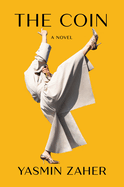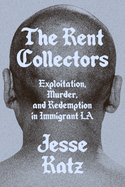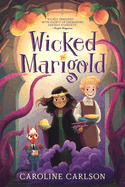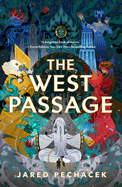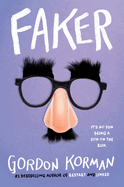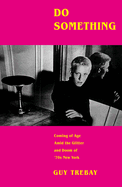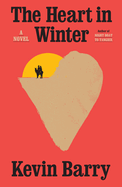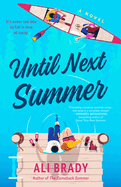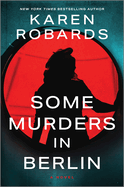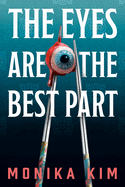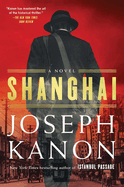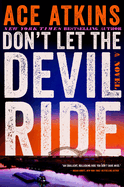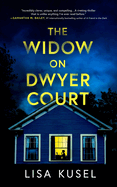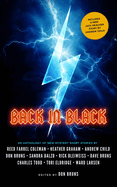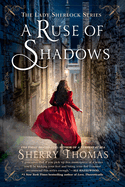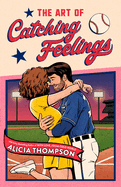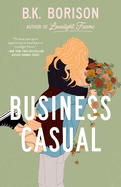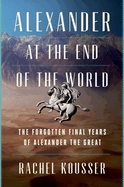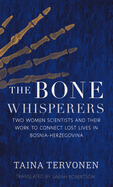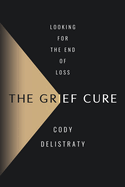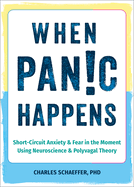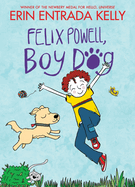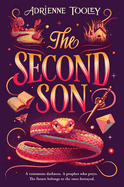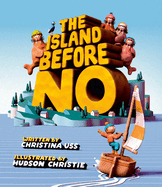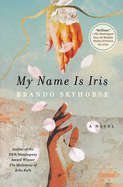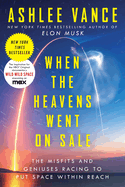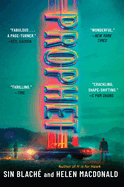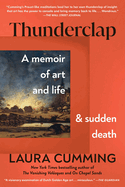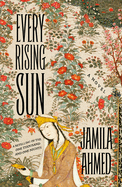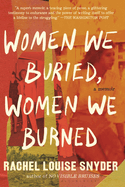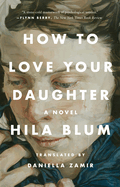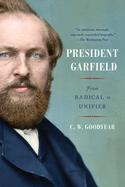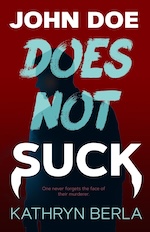Friday, July 19, 2024
This week, we feature a broad selection of riveting stories. The Rent Collectors by journalist Jesse Katz "deftly probes systemic ills" surrounding the true story of a gang shooting in L.A. that escalated into further violence; meanwhile, Jared Pechaček's debut novel, The West Passage, is "an absorbing tale of political intrigue" set "in a world both reminiscent of medieval Europe and unlike anything readers will recognize"; plus, The Coin by Yasmin Zaher presents a "hypnotic character study" of an unconventional Palestinian teacher in New York. And for younger readers, the "rib-tickling, revisionist princess story" Wicked Marigold by Caroline Carlson has "strong-willed princesses, nasty wizards, a fastidious imp, and a sentient yellow blob." What more could you want?
In The Writer's Life, We Could Be Heroes author Philip Ellis recalls the novel he hasn't stopped thinking about for a decade, describing it as a "swoonworthy lesbian romance and a rollicking Dickensian crime story wrapped up into one, with a twist you'll never see coming."
The Coin
by Yasmin Zaher
Journalist Yasmin Zaher's debut novel, The Coin, follows a young, meticulous Palestinian woman as she spirals out of control while trying to establish herself in New York City. After getting a job teaching English at a private all-boys middle school, the unnamed narrator embraces unorthodox teaching methods that encourage the boys to behave more like her followers than her students. Meanwhile, at home, she follows an expensive and unyielding cleaning and self-care routine, funded by her late parents' allowance. Yet her raw scrubbings and endless moisturizing masks aren't enough to quell her obsessions; soon she's teamed up with a homeless man to resell Birkin bags to fashionista wannabes. But even this center cannot hold as the narrator is pulled ever more toward extremities.
A hypnotic character study as obsessive as its narrator, The Coin luxuriates in its narrator's relentless internal monologue. While her eccentricities are clear from the start--telling her students "To love is to be taken hostage, boys, it's Stockholm syndrome" qualifies as what one might call a red flag--her compulsions are convincing enough to take readers hostage, too. Zaher consistently pinpoints those little textures and smells and impulses that can itch under a person's skin like a splinter and leverages them to build a world of seemingly indefensible cravings, unquenchable urges, and frantic pursuits. The coin of the title may seem to be a skin imperfection the narrator identifies about herself early in the novel, but there's no mistaking the book's larger fixation with the allusive presence of money: its paradoxical embodiment in a designer bag, its intangibility, and its all-encompassing reach. --Alice Martin, freelance writer and editor
Discover: A mesmerizing study of wealth, obsession, and belonging, The Coin is a propulsive and thought-provoking debut novel.
The Heart in Winter
by Kevin Barry
Who could have predicted that a novel set in 1891 Butte, Mont., could say something fresh that previous westerns haven't already said? Fans of the Irish writer Kevin Barry (Night Boat to Tangier; Dark Lies the Island), that's who. This endlessly inventive author is just the guy to upend the American western, which he does brilliantly in The Heart in Winter. Tom Rourke, an Irishman "in suave array and manic tatters," earns money by writing proposals of marriage on behalf of illiterate men, but not enough to cover debts from dope and drink. Life's not so great until he meets Polly, a Chicago woman unhappily married to Anthony Harrington, an Irish miner boss who self-flagellates with a thick rope whenever he prays.
Tom and Polly start an affair, burn down Tom's boardinghouse, steal almost $600 and a horse, and head for San Francisco, where, Tom hopes, "no one will find us." Harrington responds by hiring a seven-foot-tall Cornish gunman and two accomplices to bring Polly back. That may sound like a garden-variety Wild West tale, but Barry distinguishes it with philosophical heft, erudite discussions of religion and free will, and much else. And no one can top the grungy poetry of Barry's writing, with characters like the stranger in priest's collar who's "sleeping ravenously in a covered wagon" and calls himself the "voice of Zion in an epoch of whores and liars." There's nothing cookie-cutter about lines like those in this magnificent work. --Michael Magras, freelance book reviewer
Discover: Kevin Barry upends the American western with this magnificent novel, which follows a drug-addicted Irishman and the married woman with whom he has an affair.
Until Next Summer
by Ali Brady
Until Next Summer, the sweet, steamy third novel by Ali Brady (The Beach Trap), celebrates the magic of summer camp and the glittering potential of second chances both romantic and platonic. Jessie and Hillary met at Camp Chickawah as campers and became best friends, dreaming of working together as counselors one day. But their paths took radically different turns and left them estranged for years--until Jessie, now the camp director, learns that this summer will be Chickawah's last.
Determined to go out with a bang, Jessie and her gruff assistant director, Dot, plan a series of adults-only reunion weeks to crown the camp's final season and raise a little cash. Hillary returns to supervise the arts and crafts cabin, hoping to mend fences with Jessie. As for Jessie, she's dealing with a cranky novelist who's renting a camp cabin for the summer, plus the fact that she's got no post-camp plan B. Both women--with assists from Luke, the novelist, and Cooper, the hotshot Boston chef who's running the camp kitchen--find more in the Minnesota woods than fireflies and a game of Capture the Flag.
Brady (the pen name for coauthors Alison Hammer and Bradeigh Godfrey) hits all the right summer camp notes: kayaking, last-minute musicals, toasted marshmallows, and, of course, camp romances. But the novel's true magic emerges as all the characters are forced to reckon with what's next. While camp may be a temporary state, the lessons of Camp Chickawah's final summer linger like the echo of a beloved campfire song. --Katie Noah Gibson, blogger at Cakes, Tea and Dreams
Discover: Ali Brady's sweet, steamy third novel celebrates the magic of summer camp and the glittering potential of second chances.
Some Murders in Berlin
by Karen Robards
The grisly murders of eight women in Berlin in 1943 set off a hush-hush investigation that calls for the expertise of a renowned Danish psychiatrist in Karen Robards's exceptional novel, Some Murders in Berlin. After the eighth victim is found, senior Nazi officials request that Elin Lund, aka Dr. Murder, assist the investigation so they can identify the killer quickly and quietly and avoid adverse publicity. Elin, a widow and mother of a half-Jewish son, reluctantly travels to Berlin with her two investigative assistants, who are also members of the Danish resistance. Meeting them in the bombed-out ruins of the city to examine the latest victim is Kurt Schneider, the chief of criminal investigations who has recently returned from the German front lines. Elin and Kurt immediately butt heads over the investigation, but as danger mounts and the killer recognizes that the renowned Dr. Murder is on the case, the two must overcome their doubts and secrets to stop the perpetrator before he kills again--and comes for Elin.
Their search for clues takes them from the stygian darkness of Berlin's streets to subterranean nightclubs where anything goes. Robards uses this creepy backdrop to full effect as Elin and Kurt develop a clearer profile of a killer who possesses an "aura of evil" while wrestling with their developing attraction for each other. Despite its deceptively bland title, Some Murders in Berlin is anything but. Readers are in for a white-knuckle ride and a heart-stopping finish. --Peggy Kurkowski, book reviewer and copywriter in Denver
Discover: A serial killer stalks the streets of Berlin and a famous Danish psychiatrist and a German detective must find him in this stellar thriller set amid the horrors of war and Nazi persecution.
The Eyes Are the Best Part
by Monika Kim
Korean American debut novelist Monika Kim's addictive creepfest, The Eyes Are the Best Part, opens with quite a list of content warnings--in tiny type: "contains depictions of violence, eye horror, body horror, murder, cannibalism, descriptions of war trauma (non-graphic, starvation), stalking, sexism, and racism (Asian objectification)." The next-level shockers just keep coming, while the cleverly plotted manipulations command don't-look-away attention.
First-year college student Ji-won Lim lives in a tiny apartment in Los Angeles, Calif., with Umma (Mom) and 15-year-old younger sister, Ji-hyun. Two weeks ago, Appa (Dad) suddenly abandoned the family for another woman. After reading "an interesting article," Umma announces that white men are the best, and Korean men the worst, for dating. She's so convinced that three months later, she admits to the girls she's been dating George, a white customer at the Korean grocery store where she works. Ji-won instantly recognizes him as a pretentious middle-aged white man with an Asian fetish. Something about his blue eyes, though, quickly becomes an obsession. When George's alleged plumbing problems bring him into their home to stay, Ji-won's nightmarish disgust will not be contained.
Kim is certainly a compact writer. Woven into the visceral violence are multiple topics--cleverly meant to temper and distract--including post-Korean War economic and immigration history, failures of the American dream, familial dysfunctions, white patriarchy, gender inequity, and the perils of showboating. Ji-won is absolutely not a reliable narrator, but her desperate tenacity to tell her own story will make readers believe. --Terry Hong
Discover: Asian fetishes prove fatal for white men in Korean American Monika Kim's addictive debut thriller.
Mystery & Thriller
Shanghai
by Joseph Kanon
Fans of Joseph Kanon's 10 previous novels (Istanbul Passage; Leaving Berlin; Defectors) know his historic fiction is riddled with intrigue, and his 11th work, Shanghai, once again delivers readers into a period rife with uncertainty and drama.
In the late 1930s, Daniel Lohr is lucky to get out of Europe on an Italian liner bound for Shanghai, the one port accepting Jews after the Nazis seized their passports and funds. Sailing east, even to the seedy culture of the Western enclave on Chinese land, is a gift arranged by his uncle Nathan. Daniel's escape leads to his immersion in his uncle's gambling clubs in a city of glamour, politics, and violence. Ruthless Chinese gangs demand "squeeze" from the nightclubs, and Uncle Nathan knows the rules of bribery.
As Daniel learns Shanghai's complicated dangers, he also commits to protecting beautiful, vulnerable Leah, his partner in a passionate shipboard affair, who has fled to a refuge that is both haven and prison. Meanwhile, the occupying Japanese military wants businesses and the Chinese "at each other's throats." While musicians play big band dance numbers, Communists seek control, and Daniel straddles these worlds while honorably following a hard-earned philosophy: "Things won't change until we change them." Leah accepts the concessions she makes to survive, and although Daniel agrees that "this is who we are now," Kanon's complex, heart-stopping plot twists and a thrilling climax suggest that true escape awaits the tenacious war victims. --Cheryl McKeon, Book House of Stuyvesant Plaza, Albany, N.Y.
Discover: European Jews escaping the Nazis in Shanghai find a haven embroiled in violence and political intrigue in this complex, thrilling novel.
Don't Let the Devil Ride
by Ace Atkins
Ace Atkins (The Sinners; The Innocents) brews a heady mixture of international adventure, domestic suspense, and a private detective story in the elaborately plotted, tightly coiled Don't Let the Devil Ride.
Although Addison McKellar's husband, Dean, travels often for his successful construction business based in Memphis, Tenn., he frequently checks in with her and their two children. But Dean hasn't called since he left for London a week ago. Addison has a meltdown when she goes to Dean's office and discovers that the space hasn't been occupied by his company for two years. Friends and police dismiss her concerns about Dean, citing her reputation for drinking too much. But her father refers her to private investigator Porter Hayes, a former cop, who soon learns that neither Dean McKellar nor his firm exists. The novel moves from Memphis to Istanbul to Paris and involves the Russian underworld, a French criminal, a Southern evangelist, and an aging actress still capitalizing on the one movie she made decades ago with Elvis Presley.
Atkins cunningly combines the tenets of traditional private detective fiction with a global romp, while bits of well-placed Hollywood gossip add levity. The Edgar Award nominee for two novels in his Quinn Colson series, who was also selected by Robert B. Parker's family to continue the Spenser series, Atkins elegantly weaves each plot thread here into a brisk, engrossing story. Every character shines as he shows how each of them is affected by neighborhoods of Memphis where "everybody got a side hustle."
Don't Let the Devil Ride delivers a most satisfying thriller. --Oline H. Cogdill, freelance reviewer
Discover: This satisfying, action-packed thriller follows a woman worried about her husband's disappearance, who learns he doesn't exist.
The Widow on Dwyer Court
by Lisa Kusel
Scorching hot sex scenes abound in Lisa Kusel's juicy drama, The Widow on Dwyer Court, courtesy of a protagonist who writes bestselling erotica novels under a pseudonym.
Kusel (Rash) sets her story in a quiet suburban subdivision in Rayburne, Vt., where soccer mom and author Kate lives a content, orderly life with her husband, Matt, their daughter, Finley, and their dog, Munch. That she dislikes sex is not an issue in her marriage because she encourages Matt to have one-night stands on his work trips.
Annie and her daughter, Terra, are recent arrivals to Rayburne. Annie, an enigmatic widow, spends her time brewing special tea concoctions and preparing herbal ointments. As Finley and Terra's friendship blossoms, so does one between Kate and Annie, although they keep a lot from each other.
Kusel's suspenseful narrative ricochets between Kate and Annie as their lives become more entwined. There's something odd about Annie that Kate can't put her finger on, but Kate is lonely and Matt is often away. The long leash she allows Matt begins to fray as Kate's instincts tell her to rein him in. Their rock-solid marriage teeters at the same time that Annie's secrets threaten to destroy her friendship with Kate.
As tensions mount and skeletons spill out, Kate is suddenly faced with the question of what she is willing to sacrifice for her literary success, and Kusel delivers a juicy twist sure to surprise even the most seasoned fans of psychological thrillers. --Shahina Piyarali
Discover: A bestselling erotica writer befriends an enigmatic widow in this spicy drama set in a quiet Vermont neighborhood.
Back in Black: An Anthology of New Mystery Short Stories
by Don Bruns, editor
The hard-charging, crowd-pleasing Back in Black: An Anthology of New Mystery Short Stories arrives on the heels of Hotel California and Thriller, all three books edited by Don Bruns and part of Blackstone's Music and Murder Mystery series. That Back in Black features not a single genteel detective nor drawing-room denouement should surprise precisely no one familiar with the like-titled testosterone fest of a 1980 album by Australian rock titans AC/DC.
The anthology's 10 stories correspond with the AC/DC album's 10 tracks, albeit in scrambled order. In Heather Graham's "Hells Bells" (blame AC/DC, not the publisher, for the missing apostrophe), this phrase, repeatedly used by a San Diego man, sets his girlfriend's teeth on edge at an edgy time: a murderer is terrorizing too-close-for-comfort Los Angeles. Several of the collection's stories go no further than using a Back in Black song title as a launchpad. In Dave Bruns's "Givin the Dog a Bone," a desert dog has something for the retired Texas smuggler who feeds him: a bone--the ulna bone of a human, that is.
Not every offering in Back in Black deserves to top the charts, but most stories should be hits with readers. As it happens, the anthology's best-known contributor, Andrew Child, is paired with the album's best-known track, "You Shook Me All Night Long." In Child's story, legendary crime fiction good guy Jack Reacher walks into a hotel bar in Mainz, Germany, carrying a gigantic boom box, and let's just say he knows how to use it. --Nell Beram, author and freelance writer
Discover: This hard-charging, crowd-pleasing anthology--the third in the Music and Murder Mystery series--takes as its inspiration the like-titled 1980 album by Australian rock titans AC/DC.
A Ruse of Shadows
by Sherry Thomas
A Ruse of Shadows is the eighth entry in the delightfully feminist Lady Sherlock historical mystery series by Sherry Thomas (A Study in Scarlet Women; A Tempest at Sea). Because a female detective would not be tolerated by Victorian society, the brilliant Charlotte Holmes must hide her intellect behind the screen of her fictional sibling, "Sherlock."
Lord Bancroft Ashburton, the disgraced older brother of Charlotte's lover, Lord Ingram "Ash" Ashburton, knows the truth about Sherlock and blackmails Charlotte into investigating the disappearance of his henchman, Underwood. Charlotte digs deeper into Underwood's seedy background with help from Ash, and finds sinister connections to both Bancroft's underhanded dealings and her nemesis, Moriarty. But when Bancroft turns up dead, Charlotte--as Bancroft's current blackmail victim--seems the most likely perpetrator. The indomitable Charlotte takes being a murder suspect in stride, however, responding to Scotland Yard "with a calm detachment, as if she were fielding slightly intrusive questions at a tea party, rather than inquiries stemming from a murder investigation."
Witty, rapidly paced, and with perfectly nuanced Victorian vibes, A Ruse of Shadows is sure to appeal to fans of Sir Arthur Conan Doyle or Deanna Raybourn. Charlotte is clever, ruthless, and entirely feminine: able to viciously battle her enemies, outwit the police's best efforts, and consume large quantities of tea cakes with decorum. This novel could be read as a standalone if desired, but Charlotte is so irresistible that surely readers will prefer to read the whole series in order. --Jessica Howard, freelance book reviewer
Discover: In this delightfully clever historical mystery, Charlotte Holmes must outwit Scotland Yard when she becomes a murder suspect.
Science Fiction & Fantasy
The West Passage
by Jared Pechaček
The West Passage by Jared Pechaček introduces a marvelously strange cast of characters struggling against outsized forces in a world both reminiscent of medieval Europe and unlike anything readers will recognize.
Pechaček's teenaged protagonists are Pell, an apprentice to the Mother of Grey, and Kew, apprentice to the Guardian. One has trained in stories, songs, history, and rituals for births and deaths, the other in protection from the Beast. They live in Grey House, one of the five towers in an enormous palace that can take days to cross. Upon the deaths of the Mother and the Guardian, both Pell and Kew are thrust into positions they aren't quite prepared for. Before the Beast rises again, for the first time in an era or more, they must each quest beyond Grey to save the world they know.
Kew departs first, striding fearfully with his books and little else down the West Passage. In just the early pages of his adventure, he meets a sort of trout-person and a creature with rabbit ears, battles with jackals, and rides in a lantern that moves to a whistle. Pell encounters apes and a crazed tutor, befriends a Butler Itinerant riding a hollowman, and collects an unlikely stowaway.
The effect is often disorienting but always fascinating, and despite extreme variations from the "real" world, questions about power structures and agency remain relevant. Pell and Kew have been brought up to uphold tradition, but to save the world, they must grapple with the possibility of change, and of choice. The West Passage is an absorbing tale of political intrigue, touching comings-of-age, and a mind-bending phantasmagoria. --Julia Kastner, librarian and blogger at pagesofjulia
Discover: Wildly imaginative world-building, a spellbinding plot, and profoundly weird characters make this fantasy debut a memorable adventure.
Romance
The Art of Catching Feelings
by Alicia Thompson
Alicia Thompson (Love in the Time of Serial Killers; With Love, from Cold World) hits a home run with The Art of Catching Feelings, a sports romance with depth, secrets, and the right amount of spice. Freshly divorced Daphne Brink attends her first major league baseball game and drunkenly heckles the players with absurd puns. Unfortunately for third baseman Chris Kepler, Daphne unknowingly calls him the nickname his brother gave him when they were children--long before that brother died by suicide--and Chris is caught sobbing on camera in the batter's box.
Daphne tries to apologize in an Instagram direct message but accidentally forgets to include that she was the heckler. Soon, the pair are texting all day, but Chris still doesn't know Daphne's real identity. When Daphne is tapped to step in as the sideline reporter for Chris's team, the two develop an in-person relationship, and although Daphne is tormented by guilt, she can't help falling for Chris.
Beyond the thoroughly developed central relationship, Thompson also creates a particularly compelling and nuanced exploration of masculinity in sports. Chris has been trying to deal with his grief alone and grappling with his feelings about baseball and the other men in his life, especially his father and teammates. Daphne makes him believe he can be happy again--that is, until everything inevitably goes sideways.
The Art of Catching Feelings will win over readers who love a messy romance with a hint of angst, whether or not they enjoy baseball. Fans of Emily Henry's Book Lovers and Lyssa Kay Adams's The Bromance Book Club should add this to their lineup. --Suzanne Krohn, librarian and freelance reviewer
Discover: A grieving baseball player falls for the woman who heckled and then accidentally catfished him in this heartfelt romance.
The Match
by Sarah Adams
In The Match, Sarah Adams (The Rule Book) infuses serious subjects with poignant humor and lovable dogs sure to charm rom-com readers.
Evelyn "Evie" Grace Jones is a cheery and optimistic 26-year-old who has epilepsy. She moves out of her snooty, status-conscious parents' Charleston, S.C., home to work for Southern Service Paws, an organization that led Evie to Charlie, her beloved service dog. Evie adores her job, where she matches disabled people with canines that offer them remarkable assistance.
Ten-year-old Samantha Broaden also has epilepsy. Since her parents' divorce--her mother left to pursue acting aspirations--Sam has been doted on and cared for by her overprotective, self-sacrificing single father, 33-year-old Jacob, an architect. Sam loves Jacob, but he's resistant to his daughter pursuing independence by sharing her life with a service dog.
Sam sneakily lures Jacob to a new client meeting with Southern Service Paws, where he locks horns with Evie, who finds him rigid but also romantically irresistible. As Evie searches for a loyal canine companion for Sam, Jacob witnesses Evie's compassion toward his daughter and her disability. When Evie ultimately finds Sam a beautiful service dog, Daisy, Jacob softens and lowers his defenses, and romance blooms with Evie. However, Jacob's insecurity about his marriage and the return of his ex-wife, along with Evie's meddling family, become obstacles to the couple's happiness.
Adams's uplifting romantic comedy delivers positive messaging and feel-good hope. --Kathleen Gerard, blogger at Reading Between the Lines
Discover: A woman with epilepsy who works at a service dog agency finds love with the single father of a young client in this poignant rom-com.
Business Casual
by B.K. Borison
With the final installment in her Lovelight Farm series, B.K. Borison (Lovelight Farms, In the Weeds) gives readers a sweet, sincere novel about what can happen when two people allow themselves to reach for the life they want--and each other.
In Inglewild, a small town where everyone knows your name and shares your business on the local phone tree, Nova is opening a tattoo studio. She's also flirtatiously sparring with New York investment banker and spreadsheet enthusiast Charlie, a frequent town visitor who has come to temporarily run his honeymooning sister's business. Nova proposes that the two act on their attraction but keep things casual--business casual, in fact. Despite claiming to be uninterested in a relationship, there's nothing nonchalant about Nova and Charlie's connection or the tranquility they find with each other, something they desperately need. Neither is well-versed in letting their guard down--Nova believes she has to prove herself on her own to earn her family's faith in her, and Charlie feels undeserving of everyone and everything.
As their month together unspools and Charlie's departure approaches, Borison exchanges the typical third-act breakup for vulnerable conversations and an agreement to try long distance. But they can't bear being apart, and the novel's crescendo is as emotionally satisfying as it is expected (this is a romance, after all). Charming, sexy, and cozy, Business Casual is both a gratifying series conclusion and a worthwhile novel on its own about love and the perennial beauty of finding (and making) a home. --Kristen Coates, editor and freelance reviewer
Discover: A delightful friends-to-lovers romance novel that also serves as a satisfying conclusion to a beloved series.
Biography & Memoir
Do Something: Coming of Age Amid the Glitter and Doom of '70s New York
by Guy Trebay
The subtitle of Do Something: Coming of Age Amid the Glitter and Doom of '70s New York promises tales of an unforgettable Manhattan decade and, to be sure, the book contains lots of that: in the 1970s, Guy Trebay could be found "hanging around creative oddballs, drugged-up drag queens with washed-up Hollywood characters and the Warhol-adjacent." But his book also travels chronologically wide of 1970s New York, resulting in not so much a portrait of a specific time and place as--and this may sound twee given the company that Trebay was keeping--the story of a writer finding his voice.
Born in 1952, Trebay (In the Place to Be) grew up in a big dysfunctional family in the Bronx and, later, Long Island. After graduating from high school, he moved to Manhattan, where he was flittingly employed (illustrator's model, "disco juice boy" at a gay dance club) when not enjoying creative pursuits. Although Trebay lamented that "I had not found myself miraculously swept up into Andy Warhol's glamorous coterie," his preoccupation with storytelling guided him toward satisfying work as a reporter.
Do Something offers unstinting nostalgia for not just old New York but the family whose disintegration preceded Trebay's Manhattan adventures. He also writes about the AIDS crisis of the 1980s and 1991's Crown Heights riots. (He covered the latter as a reporter.) The narrative has an as-it-comes-to-me feel, its chapterlessness ultimately leaving readers with the impression of having been wound in one long skein of wistfully gorgeous sentences. --Nell Beram, author and freelance writer
Discover: In Do Something, wistfully gorgeous sentences relay unstinting nostalgia for not just '70s New York but the family whose disintegration preceded the author's Manhattan adventures.
History
Alexander at the End of the World: The Forgotten Final Years of Alexander the Great
by Rachel Kousser
Classicist Rachel Kousser (The Afterlives of Greek Sculpture) explores the definition of greatness and the power of evolving through failure in Alexander at the End of the World. This action-heavy, suspenseful biography focuses not on Alexander's early series of wildly successful military victories but rather his turbulent later years, as the young king pushed himself, his army, and his entire empire to the breaking point.
In the summer of 330 BCE, Alexander attained victory over the Persian Empire. He could have returned to his homeland of Macedonia in triumph, or ruled his empire from Persepolis. Instead, "[h]e wanted to reach the literal ends of the earth, to see the Ocean that he believed encircled them." His men were ready to return home after four years away at war, but Alexander and his forces moved farther into the Middle East toward India, learning along the way that strategic brilliance would not always guarantee an easy victory. Alexander faced near-mutiny, guerrilla fighters, grievous physical injuries, and punishing weather conditions without losing his thirst for conquest. His life reads like a summer blockbuster, complete with epic battles against cunning foes, death-defying escapes, and opulent celebrations.
Alexander's many victories left him with a large fledgling empire to rule, one that now included non-Hellenic cultures. Kousser posits that Alexander's brand of imperialism had a different flavor than that of later European empires. Her careful deconstruction of Alexander's successes and failures at governing backs up her assertion that his final years are well worthy of notice. Her alchemy of cultural context, political machinations, and heart-stopping fight scenes makes them engrossingly entertaining into the bargain. --Jaclyn Fulwood, blogger at Infinite Reads
Discover: This action-rich, thought-provoking biography explores Alexander the Great's ignored final years, his triumphs and failures, and their lessons.
Social Science
The Rent Collectors: Exploitation, Murder, and Redemption in Immigrant LA
by Jesse Katz
Jesse Katz (The Opposite Field), longtime Los Angeles journalist, tackles a true story featuring a daunting number of characters and spanning years and tragedies in The Rent Collectors. With admirable clarity and compassion, Katz unravels a complex narrative that has no easy answers.
In the MacArthur Park neighborhood of L.A. in 2007, a teenaged gang member under orders fired five shots at a street vendor, in retaliation for the vendor refusing to pay "rent" to the gang. The intended victim was badly wounded by four bullets; the fifth bullet struck and killed a nearby 23-day-old infant. The shooter, Giovanni Macedo, was in turn the victim of a botched murder attempt at the hands of fellow members of his gang, the Columbia Lil Cycos, as punishment for his error.
Katz's thorough account details Giovanni's personal and family history; the history of MacArthur Park; the cultural and economic predicament of L.A.'s immigrant street vendors; the background of the Columbia Lil Cycos, the larger 18th Street alliance, and the Mexican Mafia; the lives of Giovanni's victims; and California's law enforcement, judicial, and prison systems. The sprawling story is riveting and propulsive in this telling. The Rent Collectors deftly probes systemic ills; Katz shows that Giovanni was at the mercy of inexorable and deeply problematic societal forces. Immigration, legal, and prison systems fail, frustratingly often, to reward behaviors society deems "good" or to address adequately the "bad."
Abstaining from painting heroes or villains, Katz offers instead a plethora of thoughtful, nuanced profiles and a zoomed-out view of immigrant L.A., its street vendors, its gangs, and its intricacies. The result is relentless, multi-faceted, and incisive. --Julia Kastner, librarian and blogger at pagesofjulia
Discover: Street gangs and street vendors in L.A.'s MacArthur Park, a pair of botched murders, and a number of criminal trials shed light on social ills in this sensitive study.
The Bone Whisperers: Two Women Scientists and Their Work to Connect Lost Lives in Bosnia-Herzegovina
by Taina Tervonen, transl. by Sarah Robertson
Written with honesty and compassion, The Bone Whisperers is a heartrending journey through Bosnia and Herzegovina with French-based Finnish journalist and filmmaker Taina Tervonen, who travels across the country and visits mass grave sites. Tervonen works with scientists including Senem Škulj and Darija Vujinović as they identify bodies and speak with remaining family members of people killed during the Bosnian War.
First published in France in 2021 under the title Les Fossoyeuses, this English-language translation is skillful and wrenching. Readers will be engrossed by the stories of the missing, as told by the survivors. Through local translators, Tervonen witnesses conversations with those left behind as they describe what their brothers, husbands, or fathers were last wearing, bones they'd broken, or what they might have had in their pockets. She brings readers to sites as they are exhumed and captures the sights and smells of the aftermath of war.
For readers interested in the emotional aspects of forensic anthropology, readers of Kathy Reichs, or those wanting to know more about the human toll of war, The Bone Whisperers is a powerful choice. Tervonen also directed the documentary Parler avec les Morts (Speaking with the Dead), which depicts some of the events recounted in The Bone Whisperers, just as the book mentions Tervonen's filmmaking.
Brief but unsparing of emotional details, The Bone Whisperers demands slow and thoughtful attention. It will cause readers to reflect on how their own lives have been touched by--or spared from--the effects of war. --Alyssa Parssinen, freelance reviewer and former bookseller
Discover: Heartbreaking and timely, The Bone Whisperers will haunt readers long after the last page is read.
Psychology & Self-Help
The Grief Cure: Looking for the End of Loss
by Cody Delistraty
Journalist Cody Delistraty's first book, The Grief Cure, is an earnest personal inquiry into how medicine and technology could be used to treat complex grief.
In 2022, "prolonged grief disorder" (PGD) was added to the American Psychiatric Association's Diagnostic and Statistical Manual of Mental Disorders. Notwithstanding uneasiness over the pathologization of grief, Delistraty discovers that he is among the percentage of grieving people--as high as 20%--for whom this diagnosis of debilitating grief that severely affects daily life more than a year following a bereavement may be appropriate. Indeed, seven years after his mother's death from melanoma, he was still reliving traumatic moments from her illness and regretting he didn't get to know her as well as he felt he should have.
Delistraty travels far and wide, meeting with experts and exploring strategies that might help. Studies have aimed to treat PGD with naltrexone (which is prescribed for alcohol and opioid dependence); antidepressants, hormones, and hallucinogens are also under consideration. But not all proposed cures are pharmaceutical. After learning about the physical benefits of laughter therapy, Delistraty finds himself in the absurd position of forcing out-loud laughs in a Paris metro car. He ponders funerals and other mourning rituals but also widens the scope of loss by attending a "breakup bootcamp" in Northern California.
Two of the most extreme, intriguing methods Delistraty discusses are memory deletion, being researched by Karl Deisseroth at Stanford University, and communicating with the dead through AI chat bots trained on their speech patterns. Despite the serious subject matter, there is much levity and a spirit of curiosity here. --Rebecca Foster, freelance reviewer, proofreader and blogger at Bookish Beck
Discover: Cody Delistraty's debut work is an earnest personal inquiry into how medicine and technology could be used to treat complex grief.
When Panic Happens: Short-Circuit Anxiety and Fear in the Moment Using Neuroscience and Polyvagal Theory
by Charles Schaeffer
With a growing number of people affected by panic and anxiety in the 21st century, the choice of resources rushing to fill their needs can feel overwhelming. Psychologist Charles Schaeffer's book, When Panic Happens: Short-Circuit Anxiety and Fear in the Moment Using Neuroscience and Polyvagal Theory, cuts through it all to deliver a combination of guidance, exercises, and narratives perfect for reading as an informational text and for consulting as a handbook when the need arises.
Schaeffer introduces the concept of the polyvagal system, clearly and concisely explaining how "emotional, social, and individual experiences are regulated by your unconscious nervous system." Schaeffer refers to this system so that the connections between panic and physiological symptoms, such as digestive and sleep problems, are contextualized within a neuroscientific framework. The book is organized into three parts: information about "what happens when you panic," strategies for dealing with panic attacks, and methods for maintaining calm and stability in the long term. It's all presented in a gentle and encouraging tone. The suggested exercises include cognitive and meditative options as well as physical and musical activities, and Schaeffer acknowledges that every person will receive different benefits from each. He makes each exercise accessible, even recommending playing games like Candy Crush for a brain-building activity. References to characters in pop culture such as Spider-Man, the kids from Stranger Things, and the Guardians of the Galaxy help demonstrate complex concepts. Schaeffer's tone, simultaneously instructive and motivational, makes When Panic Happens essential for anyone experiencing panic or anxiety. --Dainy Bernstein, freelance reviewer
Discover: Both informational and motivational, this book expertly and gently guides readers through the neuroscience behind panic attacks and offers strategies for taking control of anxiety.
Children's & Young Adult
Wicked Marigold
by Caroline Carlson
Wicked Marigold is a witty and wise tale of wickedness (with a twist) that's populated by strong-willed princesses, nasty wizards, a fastidious imp, and a sentient yellow blob.
Princess Marigold of the Cacophonous Kingdoms has grown up hearing all about her sister, "perfectly good" Princess Rosalind, who was stolen by the evil Wizard Torville before Marigold was born. Unlike Rosalind, Marigold occasionally sulks and can't "coax strawberries to ripeness" with her laugh, but she builds wonderful contraptions and has adventures with kitchen boy Collin. When Marigold is 11, Rosalind, with hair "even more golden than Marigold had heard," comes home. Marigold (not particularly happy about this) dumps a bucket of water onto Rosalind and, deciding she must be wicked, runs away to Wizard Torville's castle. To stay, she must convince Torville's imp, Pettifog, that she really is wicked. But, after accidentally turning Torville into a yellow "blob of glop," Marigold learns political dissent is growing among the evil wizards of the Cacophonous Kingdoms. Marigold, Collin, and Pettifog must put things right before the wizards cast their "big magic" on Rosalind--and curse Marigold herself.
Caroline Carlson offers an accomplished, rib-tickling take on princess stories, wherein a relatable younger sibling is made to feel she can never measure up. Marigold, neither good nor wicked but rather a very human mix of the two, is spunky, likable, and thinks for herself--she is a child who ultimately understands her own worth and saves the day with her cleverness and tenacity. The smart prose hums along, and this fresh look at familiar tropes is a real winner. --Lynn Becker, reviewer, blogger, and children's book author
Discover: Wicked Marigold is a rib-tickling, revisionist princess story that's populated with strong-willed princesses, nasty wizards, a fastidious imp, and a sentient yellow blob.
Faker
by Gordon Korman
Is Robin Hood a thief or a hero? Is stealing okay if you only steal from the rich? Twelve-year old Trey starts to question his father's con-man lifestyle in the diverting and dynamic middle-grade novel Faker by Gordon Korman (Linked; Restart).
Trey's father is "a con man, a swindler, a flimflam artist." That's why every few months, the two of them and Trey's younger sister, Arianna, obtain new identities and move homes. Trey knows the routine: new town, befriend the rich kids, Dad swindles their parents, leave town to start the cycle over. But this time, in Boxelder, Tenn., Trey develops a circle of friends and builds a community that he doesn't want to leave. Trey's dad believes his newest investment scam could be "The Big Kahuna"--"an operation so successful, a score so large, that we can retire from the business and live off the profits forever"--but is it worth it if it means leaving Boxelder?
Faker considers questions of wealth, status, income inequality, and family loyalty. In doing so, Korman deftly tackles complex ethical dilemmas with humor. Korman's attention to detail provides logical and consistent answers for potential plot holes, ensuring a completely plausible story of a single dad supporting his kids through cons. As Trey begins to question his father's choices, Korman doesn't villainize the father, but rather focuses on Trey's inner conflict and the decisions he must make about his own future. Faker is a story that's part ethical drama, part pre-teen romp, and all heart. --Kyla Paterno, freelance reviewer
Discover: Twelve-year-old Trey starts to question his dad's con-man lifestyle in this compelling and entertaining middle-grade novel.
Felix Powell, Boy Dog
by Erin Entrada Kelly
Newbery Medal-winner Erin Entrada Kelly (Hello Universe; We Dream of Space) delivers a love letter to children with pets--particularly dogs--in the playful younger middle-grade novel Felix Powell, Boy Dog.
When eight-year-old Felix listens to the "little voice" in his head that tells him "There is something special about this blanket," he purchases it from Birdie's Thrift Shop and takes it home. The boy wonders what makes this blanket so special until he takes it with him on a backyard picnic with his dog, Mary Puppins. When Felix hides under the blanket for Puppins to find him, the boy emerges as a dog. There is lots for Felix to get used to about being a pup, like enhanced hearing and the importance of greeting other dogs appropriately (that is, by smelling butts). While Felix enjoys learning how to be a dog from Puppins, he begins to miss being a boy. But how does he turn himself back?
Kelly uses short sentences and accessible language, explaining any word that might be new to a young reader. She makes excellent use of dialogue to tell much of the story, and conversations between Mary Puppins and the neighborhood cat, Gumbo, give an amusing view into how animals might view the world ("If me and Gumbo were in a sniffing contest I would win, paws down," Puppin says). Kelly's grayscale spot art is done in a lovable, naïve style that feels like Felix himself might have sketched it. Lighthearted humor is balanced perfectly with minor suspense in this novel for young pup lovers. --Kharissa Kenner, children's Llibrarian, Bank Street School for Children
Discover: When Felix accidentally turns into a dog, he must rely on help from Mary Puppins and Gumbo in this witty, playful young middle-grade novel.
The Second Son
by Adrienne Tooley
In this riveting YA fantasy sequel, a living god and a queen battle a vengeful deity's cult.
After the events of The Third Daughter, Elodie reigns as the Queen of Velle, and god Sabine leads Velle's church as the "New Maiden reincarnated." However, Elodie and Sabine's grip on power is tenuous. Sabine once made a living selling her magical tears, which came from a well of deep sadness within her. Now, that sadness has been replaced by "numbness," and the magical tears no longer come. Elodie is undermined by her male advisers, including her childhood friend, Tal, who is a fervent supporter of the Second Son, a deity foretold to be "the New Maiden's downfall." The Second Son's mysterious prophet sows unrest among Velle's disaffected citizens, particularly the angry young men. Elodie and Sabine's blossoming romance is strained as the girls race to unmask the prophet and destroy the Second Son's power.
The Second Son is a worthy sequel and a spellbinding story on its own. Author Adrienne Tooley continues her discussions of mental health and female agency introduced in The Third Daughter; Elodie and Sabine are empowered as they embrace their anger, an act that was previously discouraged. Sabine realizes that "sadness and anger [are] intrinsically linked" and "if a person was allowed to feel only the half of it, the rest would echo emptily." This emotionally hard-hitting novel of magic and court intrigue will satisfy both the fans of book one and readers of royal fantasy. --Alanna Felton, freelance reviewer
Discover: A queen and a reincarnated god fight for their country, and each other, in this emotionally intense follow up to 2023's The Third Daughter.
The Island Before No
by Christina Uss, illus. by Hudson Christie
The Island Before No cleverly, comically, and with plenty of aplomb relates a story about how a huddle of overly agreeable walruses deals with the challenge of a contrary new Kid who arrives on their island.
On this island full of walruses, "every simple question had just one simple answer: yes!" Yes worked beautifully when questions pertained to eating cake; it was "not so great when someone asked you to wear an itchy shirt." But "yes" is the only answer these walruses know. Until the Kid shows up. The Kid parks his boat in the middle of the Walrus Ball court and, when asked to move, responds with, "NO!" NO wasn't "shaped like YES, but somehow it was still an answer." NO is "heavy like a bookcase" and allows the Kid to eat all the donuts. The frustrated walruses finally decide they need to employ the "big new word" themselves. Their first NOs are "squishy like sponges" but, with practice, they manage to squeeze out small NOs. It works! The pod sets about saving their island.
Christina Uss (The Adventures of a Girl Called Bicycle) delivers a chucklesome narrative that follows a clear, concise arc, expertly punched up with plenty of fun linguistic devices. The story unfolds in 56 generous pages, giving debut book illustrator Hudson Christie ample room to contribute enthusiastic, appealing visuals. Christie's clay and paper dioramas bring a solid, 3-D heft to the art and some spreads--which are illustration only, even the text rendered in the artist's Claymation style--help both pace and emphasize plot points. This splendid cautionary tale comes in the most kid-friendly of packages. --Lynn Becker, reviewer, blogger, and children's book author
Discover: The Island Before No cleverly and comically relates the story of how a huddle of overly agreeable walruses learns the value of partnering "yes" with "NO."
New in Paperback
The Writer's Life
Reading with... Philip Ellis
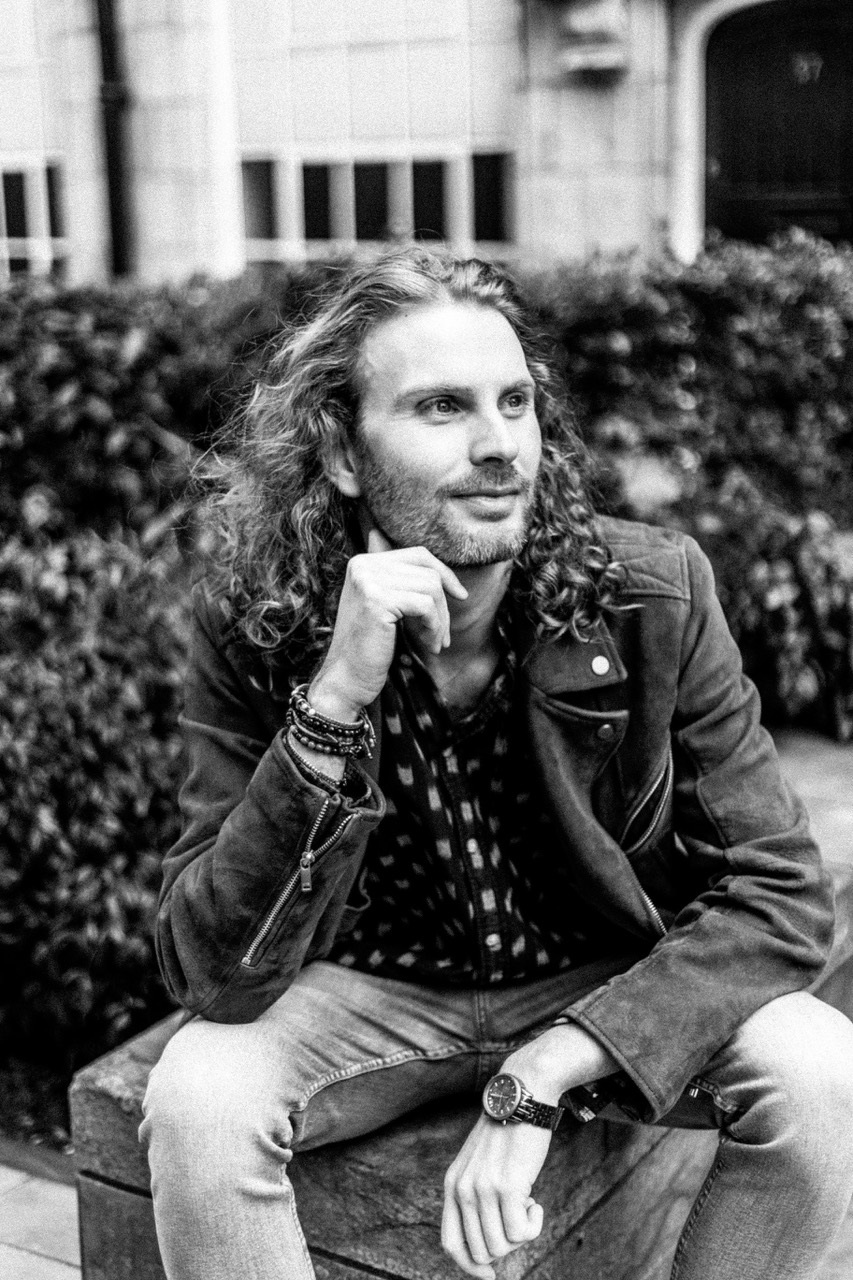 |
|
| photo: Tam Bernard | |
Philip Ellis is Sex & Relationships editor at Men's Health magazine and the author of Love & Other Scams. He lives in Birmingham, U.K. His second novel, We Could Be Heroes (Putnam), is a romantic comedy set in the not-so-different worlds of superhero movies and drag.
Handsell readers your book in 25 words or less:
It's The Seven Husbands of Evelyn Hugo meets Notting Hill, with drag queens. Come for the jokes, stay for the big feelings!
On your nightstand now:
I'm currently reading Experienced by Kate Young. I was lucky enough to read an early draft of this brilliant romantic comedy and am having a great time diving into the final version now that it's out in the world; it's about a lesbian who's only ever had one girlfriend, until that girlfriend hits pause on their relationship so she can go out into the world and sleep with more people. Naturally, complications ensue.
Next on my list is A Power Unbound, the final installment in Freya Marske's phenomenal LGBTQ+ romantic fantasy trilogy; these books are witty, gripping, surprisingly sexy, and brimming with magic.
I can't wait to read Henry Henry by Allen Bratton, his queer satire inspired by Shakespeare's history plays, which everybody is talking about right now. I'm also halfway through the audiobook of Kitchen Confidential by Anthony Bourdain: my husband is a chef, and this is one of his all-time favourites. The audiobook is narrated by the late Bourdain himself, which makes for a bittersweet listening experience.
Favorite book when you were a child:
Mort by Terry Pratchett. I found a lot of the early Discworld novels impenetrable, probably because I lacked the classic fantasy references from the '80s that Pratchett was skewering, but I loved the books that focused on the character of Death and his dysfunctional extended family.
Your top five authors:
Kate Atkinson, whom I started reading in my early 20s and whose recent novel Shrines of Gaiety is one of the best things I've read in years.
Sarah Waters, whose novel Fingersmith I have not stopped thinking about since I read it over 10 years ago; it's a swoonworthy lesbian romance and a rollicking Dickensian crime story wrapped up into one, with a twist you'll never see coming.
David Mitchell, who writes literary doorstoppers that are surprisingly accessible and blend genres in fun, interesting ways. If your only experience of his work is Cloud Atlas, I encourage you to seek out the even-more-ambitious The Bone Clocks.
Alexis Hall, whose queer romantic comedies are hilarious and addictive: Boyfriend Material is one of the funniest books I've ever read, and I have had a great time with Hall's recent foray into magical romance, Mortal Follies.
And finally, perhaps unsurprisingly, romcom royalty Emily Henry. Her debut novel, Beach Read, was a breath of fresh air when I first read it during lockdown, and I've been on the Henry train ever since. She has such a talent for coming up with what might at first seem like a light, frothy premise, and then imbuing it with real emotional weight.
Book you've faked reading:
Pride and Prejudice by Jane Austen. I'm a sucker for adaptations and retellings of this story, like the iconic Bridget Jones's Diary by Helen Fielding and Curtis Sittenfeld's modern reimagining Eligible. And I just think it's so cool how this story can continue to reveal new insights when looked at through the lens of different cultures and identities: Pride by Ibi Zoboi reinterprets the Bennets as an Afro-Latino family resisting the gentrification of their Brooklyn neighborhood; Unmarriageable by Soniah Kamal takes place almost in real time over a multiple-day wedding celebration in modern Pakistan; and the movie Fire Island transports viewers from the world of Regency balls to gay circuit parties. I'm also a longstanding defender of the 2005 film version with Keira Knightley, but I have somehow never got around to reading the original if you can believe it!
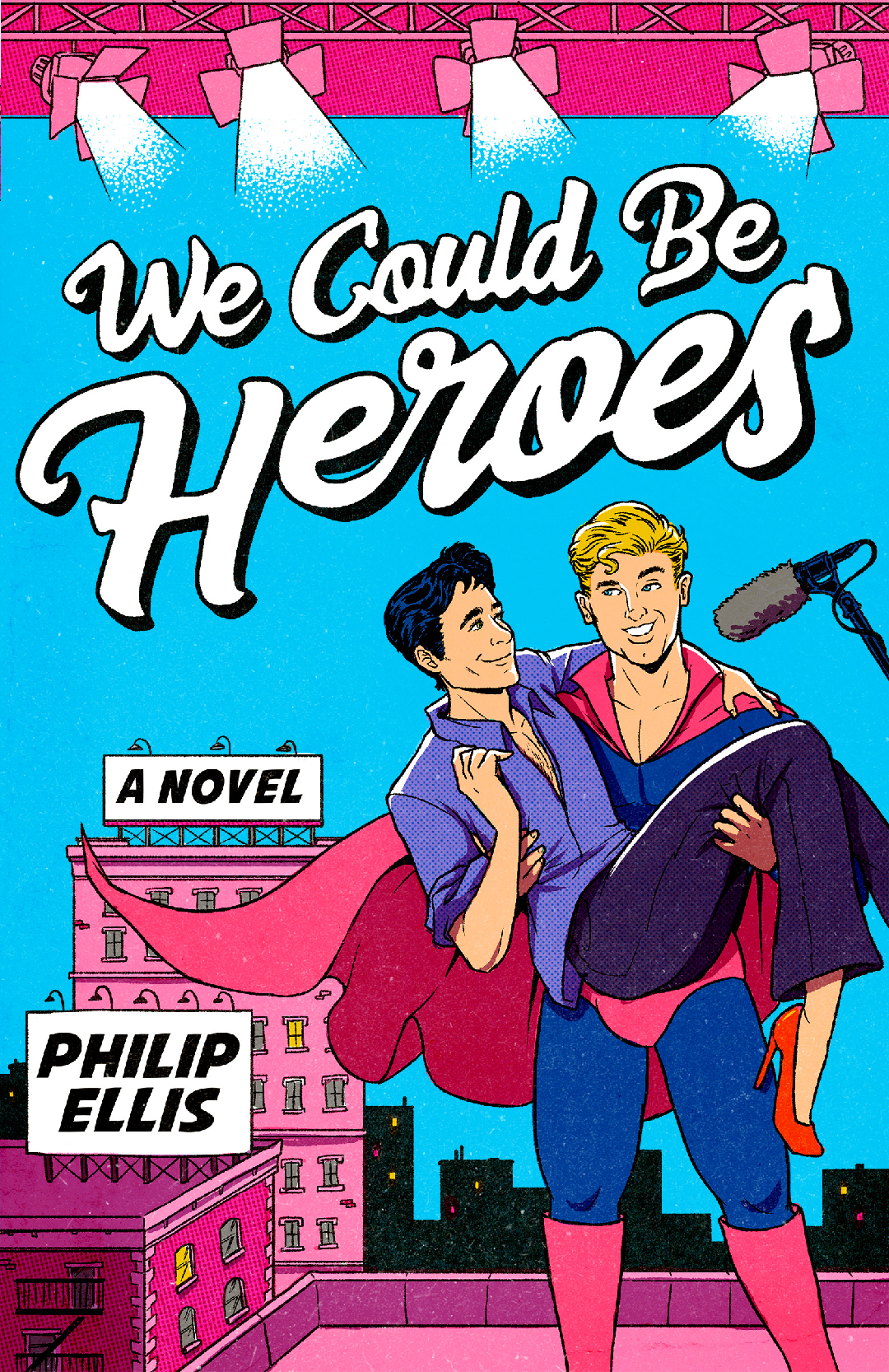 Book you're an evangelist for:
Book you're an evangelist for:
The Rachel Incident by Caroline O'Donoghue. I've been recommending this novel to everybody since it came out last year; the late 2000s nostalgia is so on-point it's almost triggering, and the plot--revolving around two best friends and a very peculiar love triangle--had me hooked.
Book you've bought for the cover:
So, so many. But most recently, The Book of Love by Kelly Link. Although I was already sold before I saw the cover; when one of your favourite short story writers finally puts out a novel--and a thick one at that!--you sit up and pay attention.
Book you hid from your parents:
Anne Rice's Vampire Chronicles. My parents were never too bothered about me reading horror--I picked up my first Stephen King when I was 11 or 12--but they probably would have had thoughts about just how much erotica was smuggled into the pages of those books in between all the bloodsucking.
Book that changed your life:
Tales of the City by Armistead Maupin. I was 17 when I first picked up this series about the lives and loves of a chosen family in San Francisco, and seeing a gay character like Michael Tolliver so beautifully depicted on the page opened my eyes to whom fiction could be written for and about. A 10th installment, Mona of the Manor, just came out, and spending time with these characters again was like being reunited with old friends.
Favorite line from a book:
"He sounded like a drinker, and possibly a homosexual. I took an immediate liking to him." --from "The Resident," a story in Her Body and Other Parties by Carmen Maria Machado. Honestly, if I were a character in a book, this is how I would want to be introduced.
Five books you'll never part with:
Sea of Tranquility by Emily St. John Mandel, although really this could apply to any and all of her novels. Less by Andrew Sean Greer, a romantic whirlwind of a book that I love so much I have absolutely no desire to read the sequel. Breakfast at Tiffany's by Truman Capote, Audrey Hepburn's Givenchy and pearls notwithstanding, Holly Golightly remains a truly fucked-up character and I will always love her. Giovanni's Room by James Baldwin; I am amazed by what he accomplished in so short a book. And finally, The Secret History by Donna Tartt; allow me to be the first person to ever express the opinion that this Donna Tartt lady is very good at writing and will probably go far!
Book you most want to read again for the first time:
Any Way the Wind Blows by Rainbow Rowell. I had anticipated this book for so long, so eager to see if Simon and Baz would finally end up together, that I burned through it in a single sitting when I should probably have savoured the emotional revelations a little more. When Rowell's new book Slow Dance comes out later this year, I will try to exercise more self-control.
Book you're jealous you didn't write:
I'm hugely envious of the humour, insight, and vivid characterization in Greta and Valdin by Rebecca K. Reilly; she created a family that felt so real I wanted to invite myself over for dinner.
Book you would hand to your teenage self:
Red, White & Royal Blue by Casey McQuiston. Not just because it's a deeply moving gay romance, but because it's also a very fun book, and I think teenage me could have done with taking everything--including himself--a little less seriously.
Book Candy
Book Candy
"What do real spies think of James Bond?" CrimeReads investigated.
---
"How Choose Your Own Adventure Books became beloved among generations of readers." (via Open Culture)
---
Marmalade, for example. Merriam-Webster looked up "8 words with fascinating histories."
Rediscover
Rediscover: Ruth Westheimer
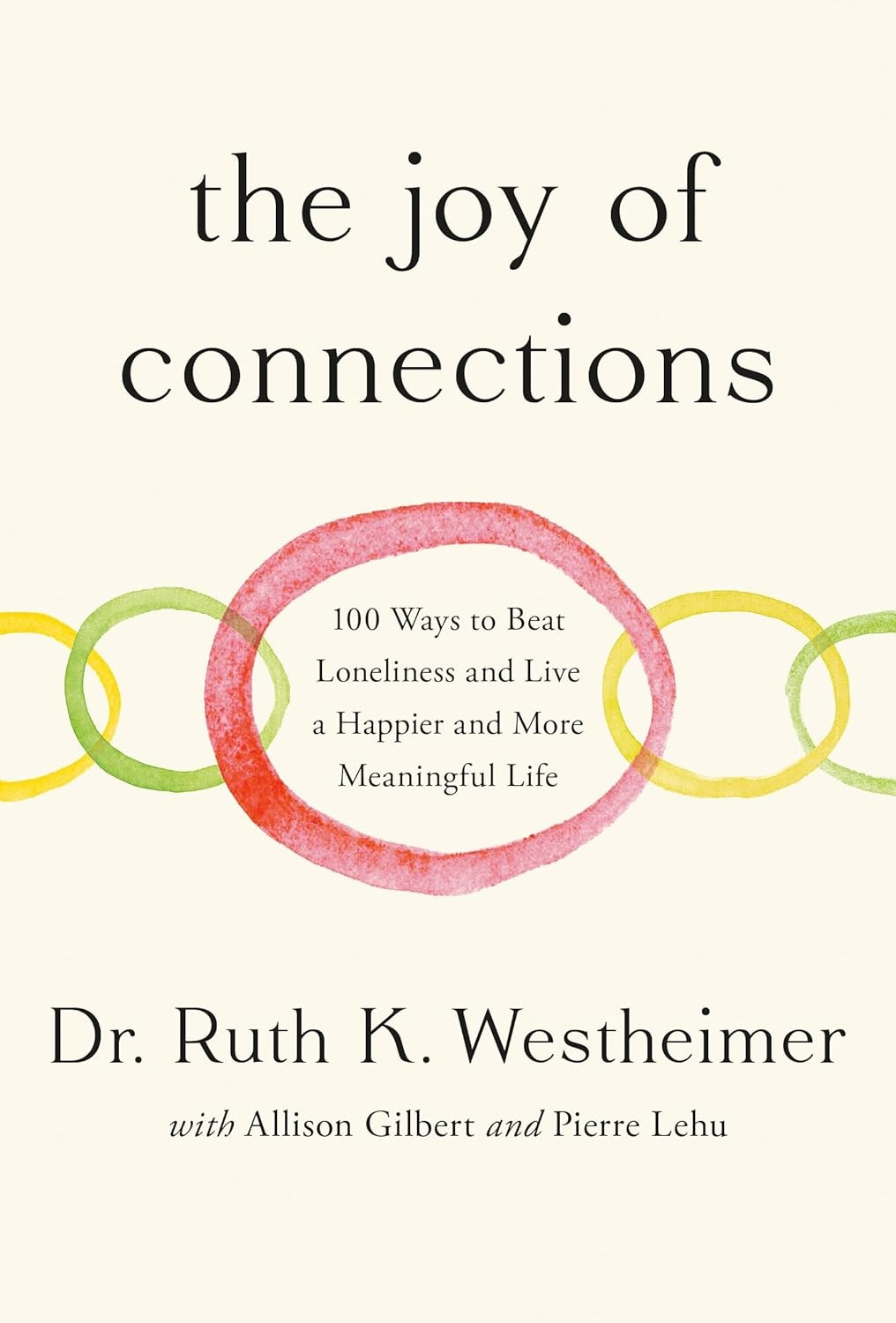 Ruth Westheimer, "the grandmotherly psychologist who as 'Dr. Ruth' became America's best-known sex counselor with her frank, funny radio and television programs," died July 12 at age 96, the New York Times reported. Westheimer was in her 50s when she began answering listeners' mailed-in questions about sex and relationships on WYNY's Sexually Speaking, a 15-minute segment heard after midnight on Sundays. The show was such a hit that she quickly became a national media celebrity and a one-woman business conglomerate.
Ruth Westheimer, "the grandmotherly psychologist who as 'Dr. Ruth' became America's best-known sex counselor with her frank, funny radio and television programs," died July 12 at age 96, the New York Times reported. Westheimer was in her 50s when she began answering listeners' mailed-in questions about sex and relationships on WYNY's Sexually Speaking, a 15-minute segment heard after midnight on Sundays. The show was such a hit that she quickly became a national media celebrity and a one-woman business conglomerate.
In addition to her widespread media celebrity, especially in the 1980s, Westheimer published more than two dozen books on sexuality, including Dr. Ruth's Guide to Good Sex (1983), First Love: A Young People's Guide to Sexual Information (with Nathan Kravetz, 1985), Dr. Ruth's Guide for Married Lovers (1986), Sex and Morality: Who Is Teaching Our Sex Standards (with Louis Lieberman, 1988), Dr. Ruth Talks to Kids (1993), and Who Am I? Where Did I Come From? (2001). Her other books include All in a Lifetime: An Autobiography (1988) and Conquering the Rapids of Life: Making the Most of Midlife Opportunities (with Pierre A. Lehu, 2003).
Westheimer was born Karola Ruth Siegel in Wiesenfeld, Germany in 1928, the only child of an Orthodox Jewish couple. Her father was a wholesaler in Frankfurt, and together with her parents and grandmother, she lived a comfortable life largely shielded from the reality that Germany was becoming ever more perilous for Jews, the Times noted, adding: "When the Nazis took her father away in 1938, her mother and grandmother managed to get her included in a group of children sent to a school in the Swiss mountains. There, she later recalled, she was educated only through the eighth grade and served for all practical purposes as a housekeeper for the Swiss children. She never saw her family again; they were all presumed murdered at Auschwitz."
In her memoir Musically Speaking: A Life Through Song (2003), she described in great detail the band concerts, folk tunes, and popular songs she had known as a happy young child in Frankfurt, Germany. The Times noted that although she was tone-deaf and not much of a music lover, "she came to realize rather late in life that these vivid recollections probably took the place of the family history she would have heard if her family life had not ended abruptly at age 10. 'The melodies and the words of the songs I knew provide a link with the past forever,' she wrote."
At the height of her popularity, Westheimer had syndicated live call-in shows on radio and television, wrote a column for Playgirl magazine, lent her name to a board game and its computer version, and began publishing guidebooks on sexuality. College campus speaking appearances alone brought in a substantial income, and she appeared in ads for cars, soft drinks, shampoo, typewriters, and condoms.
Columnist William E. Geist, who visited her for a New York Times Magazine article in 1985, observed that "she looks for all the world as though she is about to tell us in her cheery Mittel-European accent how to make a nice apple strudel.... But when she opens her mouth it's Code-Blue-in-the-family-room all across the country. She sends forth on radio and television the most explicit insert-tab-A-into-slot-B instruction in sexual manipulation, stimulation and satisfaction."
In November 2023, Dr. Westheimer was named New York State's first honorary "ambassador to loneliness" by Governor Kathy Hochul. In that position, Westheimer would "help New Yorkers of all ages address the growing issue of social isolation, which is associated with multiple physical and mental health issues," the governor said in a statement.
Dr. Ruth made the most of her attendance at the ABA, BookExpo, and Frankfurt shows, and many book world veterans have amusing stories about her cheerful, resolute ways of promoting her books and being in the spotlight. Her final book, The Joy of Connections: 100 Ways to Beat Loneliness and Live a Happier and More Meaningful Life, will be published by Rodale on September 3.
Read what writers are saying about their upcoming titles


